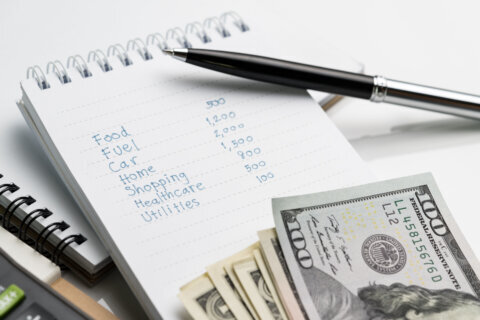For the first time since 1997, there were no Atlantic hurricanes in August, but the National Hurricane Center is already tracking two named storms this month.
Before entering what is traditionally the busiest month of the Atlantic hurricane season, you may want to consider buying an emergency generator to keep your home or business humming during a power outage.
“Consumers want and need reliable power,” said Kris Kiser, president and CEO of the Outdoor Power Equipment Institute, based in Alexandria, Virginia. “The time to buy a generator is before you need it. You don’t want to be looking for one after the storm.”
Today’s generators offer a variety of features, and there is a product for every need, Kiser said. The key is first determining what your emergency needs are.
“How much power do you need, and how much stuff do you want to run?” said Kiser. “Is it going to run heavy appliances, is it going to run heating and cooling, or is it going to run just the plugs to recharge your devices?”
Once you know which items are essential during a power outage, you’ll need to figure out how much energy those appliances require to determine what size generator to purchase.
“Major electrical appliances will have a start power and a run power, so they’ll run on less power than it takes to start them,” Kiser said. “That’s the power rating you’ll have to look for: How much power do I need to start, and how much power do I need to run everything?”
You can find this wattage information on the appliance itself or on the manufacturer’s website.
OPEI recommends doing some research before you buy. Talk with the staff at the store or ask questions online about safety features, as well as manufacturer fueling and care instructions. You’ll also want to consider circuit-breaker-protected outlets to guard against generator overload.
A larger fuel tank will provide extra running time, and integrated fuel gauges will help you keep tabs on fuel levels to prevent power disruptions. However, the price of an emergency generator can vary widely, depending on the size of the unit.
Gasoline- or propane-powered portable generators can range from around $1,000 to $20,000, Kiser said, while standby generators, which are hardwired to the house and run on propane or natural gas, can run several thousand dollars.
Once you’ve purchased a generator, identify where you will put it — portable generators require plenty of room for ventilation, for example. So before a storm hits, Kiser said owners should identify how they will cover and vent the generator.
“A generator is an engine that produces carbon monoxide, so you can never run it inside,” Kiser said. “You can’t run it in the garage, in the breezeway or against the house near an open window or door.”
Keep an outdoor-rated extension cord that is long enough to place the generator at a safe distance from your home — at least 15-20 feet. OPEI also recommends you install a carbon monoxide detector and keep extra batteries on hand for it.
“Water and electricity don’t mix,” Kiser said. “These generators are designed to be all-weather, but the key to efficient, safe operation is to keep them dry.”
You can purchase model-specific tents or generator covers, or you can put the generator on a raised platform with a tarp, Kiser said.
When you know a storm that could cause power outages is approaching, OPEI recommends that you run your generator so you know it is operating properly and buy fresh fuel.
“Gasoline goes stale today because it has ethanol in it,” Kiser said. “The ethanol absorbs water, causing phase separation, and it becomes no good” because the mixture essentially breaks apart.
OPEI recommends you always use an appropriate container designed to hold fuel that seals well and stores fuel safely. Label the containers with the date of purchase and the ethanol content, avoid heat sources and keep the containers out of reach of children.
Propane can be stored indefinitely, and gasoline stabilizers can extend the useful life of stored gasoline for a year or more.
While shopping for your generator, Kiser said, you may also want to consider other equipment that could be useful during storm cleanup, including a water pump, chain saw or pole pruner. OPEI advises you read the instructions provided by your outdoor power equipment manufacturer before you need it — not during an emergency — and save a digital copy of the owner’s manual on your computer for future reference.







